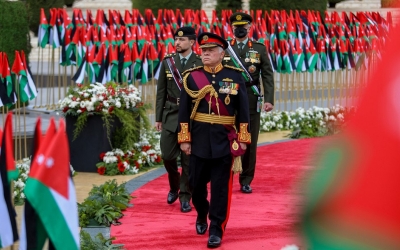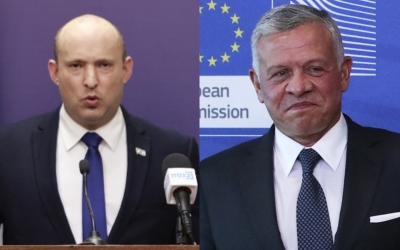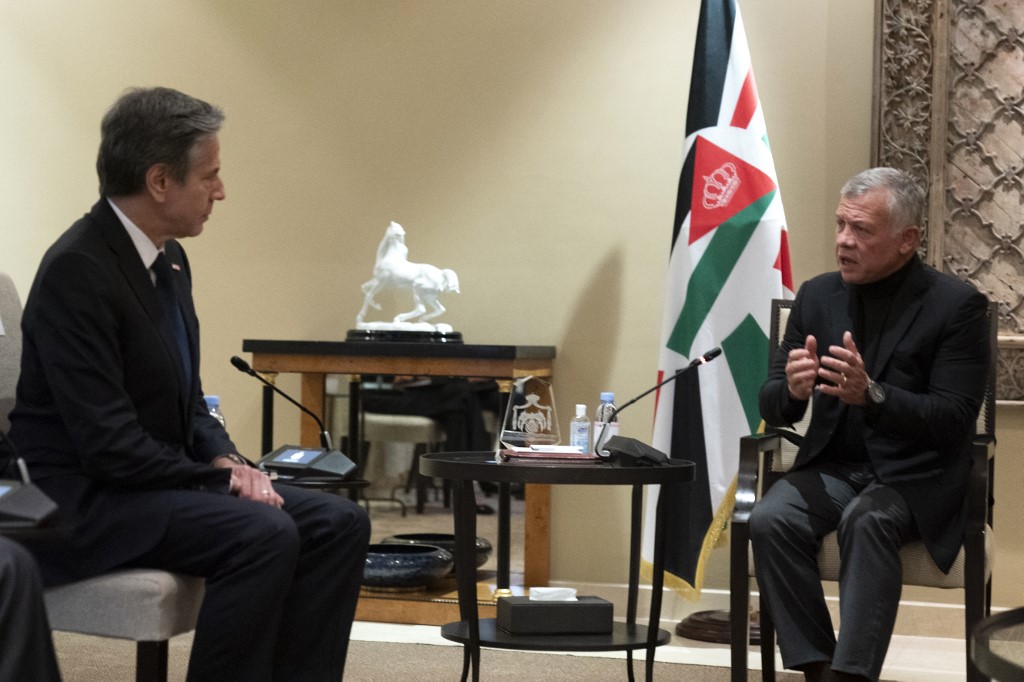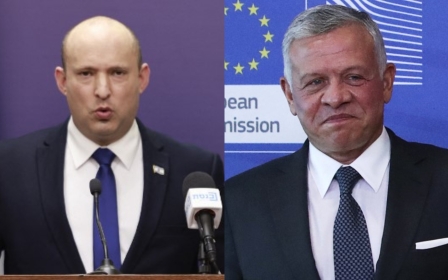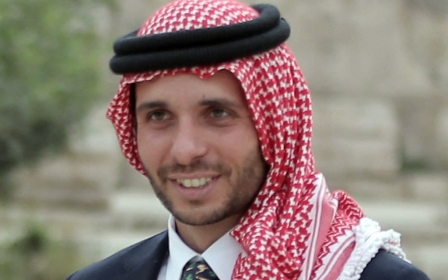Jordan and Israel set for US-brokered rapprochement under Naftali Bennett
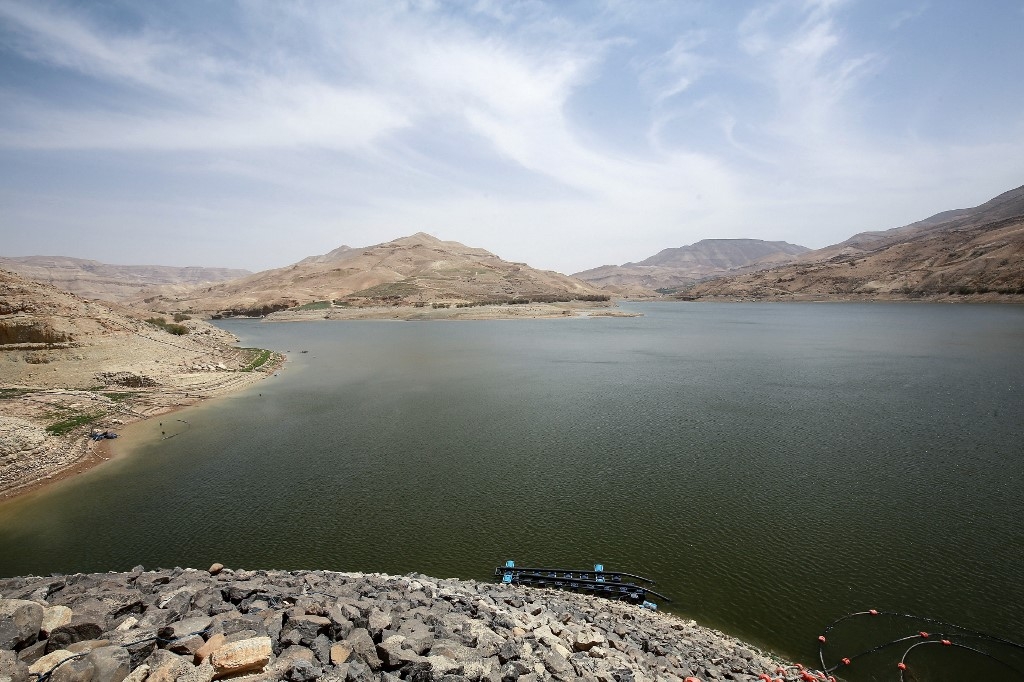
An upcoming visit by Jordan's King Abdullah II to Washington is set to unleash a new era in diplomatic relations between Jordan and Israel after a period of tensions under the former Israeli prime minister, analysts and former officials tell Middle East Eye.
Relations between Jordan and Israel are slowly returning to normal after last month’s election of Naftali Bennett as prime minister, with his government seeking to ameliorate ties with Amman as a foreign policy priority.
The two countries, which have a 1994 peace agreement, have been at loggerheads during the tenure of former Israeli prime minister Benjamin Netanyahu due to a range of disputes between him and Jordan’s King Abdullah II, including the latter's opposition to Donald Trump's controversial Middle East plan and his tense relation with the Saudi crown prince.
'Today the US is trying to push forward peace between Jordan and Israel now that there is a majority in the government that is opposed to Netanyahu'
- Mamdouh Abadi, former deputy prime minister of Jordan
The tit-for-tat row between Israel and the Hashemite kingdom had reached a peak in March with Israel's decision to cancel Jordanian Crown Prince Hussein bin Abdullah's visit to the Al-Aqsa Mosque compound in occupied East Jerusalem.
The decision led Amman to deny Netanyahu’s helicopter access to Jordanian airspace the very next day, as he was headed to the United Arab Emirates. Netanyahu then allegedly refused to supply Jordan with water in retaliation. However, he reportedly changed his mind after a call from US Secretary of State Antony Blinken to his Israeli counterpart, Gabi Ashkenazi.
The election of a new Israeli prime minister and the advent of the Biden administration has arguably changed the equation.
Mamdouh Abadi, former deputy prime minister of Jordan, said that Washington is taking advantage of the change in Israeli leadership to bring the two Middle Eastern countries closer.
“There is good chemistry between the Jordanian and American leaders. Today the US is trying to push forward peace between Jordan and Israel now that there is a majority in the government that is opposed to Netanyahu,” he told Middle East Eye.
“If the Americans pressure Israel, there will surely be a change in stalled issues, such as the two-state solution and settlement expansion. Jordan can play a crucial role in restarting the talks with Israel,” he added.
Post-Netanyahu detente
In the latest sign of detente, Bennett has turned to water to cool off the relationship with the Hashemite kingdom. He even met secretly with King Abdullah II earlier this month, and informed the king that Israel is willing to sell water to Jordan.
The position comes in contrast to that of Netanyahu, who had refused to approve the supply of water to Jordan as provided under the 1994 Wadi Araba peace agreement. Under the agreement, Israel pumps water out of the Jordan river and transfers it back to Jordan during dry spells, as it remains one of the world's most water-scarce states.
This summer, Jordan is suffering a severe water shortage. It has only 400 million cubic meters, while it needs 900 million according to the Ministry of Water. Jordan had a hard time just to receive an additional eight million cubic meters during Netanyahu’s reign. At one time the former Israeli premier even threatened to make “Jordan thirsty.”
That is not the case under Bennett. At a meeting that took place at the Jordanian side of the King Hussein bridge between the Israeli and Jordanian foreign ministers on 8 July, Israel agreed to sell Jordan a further 50 million cubics annually, according to the Jordanian foreign ministry.
Two days later, King Abdullah had a phone conversation with the newly elected Israeli president, Isaac Herzog, where they talked about the suspended peace process between Israel and the Palestinians and the importance of the relationship between both sides.
Ayman Hunaiti, an expert in Israeli affairs, told MEE that the leak of the secret meeting between the king and Bennett was done “on purpose” to show that the new Israeli government was working to improve relations with Jordan.
“Jordan didn’t want to announce this meeting for a number of reasons, including the fact that Bennett is known to be a right-wing extremist.”
Since Bennett's election, Israel has continued its policy of settlement expansion and destruction of Palestinian homes in Area C of the occupied West Bank, with further arrests of Palestinians living in East Jerusalem, and violent crackdowns and settler attacks on Palestinian villages.
US visit to 'fix the relationships'
The push for improved ties comes amid Jordan's crackdown and prison sentences against former royal court chief Bassem Awadallah and minor royal Sharif Hassan bin Zaid over their alleged involvement in a conspiracy to replace King Abdullah II with his half-brother Prince Hamzah.
The coup attempt, Middle East Eye has previously revealed, was foiled after Jordanian intelligence services intercepted voice and text messages between Awadallah and the Saudi Crown Prince Mohamed bin Salman, in which they discussed how to destabilise King Abdullah's rule.
Those messages were then shared with Washington, which prompted Biden to issue a strong message of support for Abdullah hours after the arrests of the alleged sedition plotters were made.
Meanwhile, the Washington Post has reported that Trump, Bin Salman and Netanyahu had tried to undermine King Abdullah’s role as custodian of the holy sites in Jerusalem because of his perceived role as an obstacle to the so-called “deal of the century” and to normalisation of ties between Saudi Arabia and Israel.
The upcoming visit by King Abdullah to Washington, scheduled for 19 July, is expected to be a prelude to better Jordan-Israel relations.
The visit will include Biden’s first meeting with an Arab leader at the White House. There is also speculation that the king will meet Bennett in the same trip.
“This is supposed to fix the relationships and prepare the direction for negotiations. What Jordan is interested in is the guarantee of the Hashemite custodianship regarding Jerusalem. This was discussed in a serious way in the secret meeting between the King and Bennett,” according to Huneiti.
Meanwhile, there have also been rumours that the crown prince of Jordan, Hussein Bin Abdullah, will visit Jerusalem within two months. The former minister of municipalities Hazem Kashoui made that claim in an article published 7 July in the Jordanian Al Uroba news site.
When approached by MEE for comment, Khashoui did not confirm or deny the report, while the website later removed any reference to the visit in his article.
A number of Jordanian political analysts told MEE that the king’s meeting with Biden will feature above all the Palestinian issue and Jerusalem. That includes the urgent need to stop forced evictions of Palestinians in Jerusalem and the need to preserve the Hashemite custodianship of holy places.
Other issues expected in the talks include relations with Syria and the US permission for Jordan and Syria to develop better economic relations, bypassing the Caesar Act, which places financial sanctions on the Bashar al-Assad regime for war crimes against the Syrian population.
MP Mohammad al-Momani, a former minister and spokesman of the Jordanian government, told MEE that the new US administration “appears to have a closer understanding of the Jordanian position regarding the region”.
The Washington talks, he said, will be focused on “how to reach the two-state solution under the new Israeli government and a willing Palestinian leadership.” He added the Syrian issue will be discussed in terms of its importance for regional stability.
Hamadeh Farneh, a former MP and commentator on Palestinian and Israeli relations, said the visit of the king to Washington will include discussions related to financial aid to the Palestinians, the reopening of the Palestinian mission in Washington, and the reaffirmation by Biden of the two-state solution “despite the fact that it is hard to implement”.
Farneh believes that Israeli officials will meet with the Jordanians in Washington following the king’s meeting with Biden, but it will not be unconditional.
“Jordan has a number of conditions before agreeing to regular meetings with the Israeli occupiers, including the need to respect the sanctity of Al-Aqsa mosque, the need to stop settlements, and permission for better Jordanian-Palestinian economic ties,” he told MEE.
Middle East Eye propose une couverture et une analyse indépendantes et incomparables du Moyen-Orient, de l’Afrique du Nord et d’autres régions du monde. Pour en savoir plus sur la reprise de ce contenu et les frais qui s’appliquent, veuillez remplir ce formulaire [en anglais]. Pour en savoir plus sur MEE, cliquez ici [en anglais].


